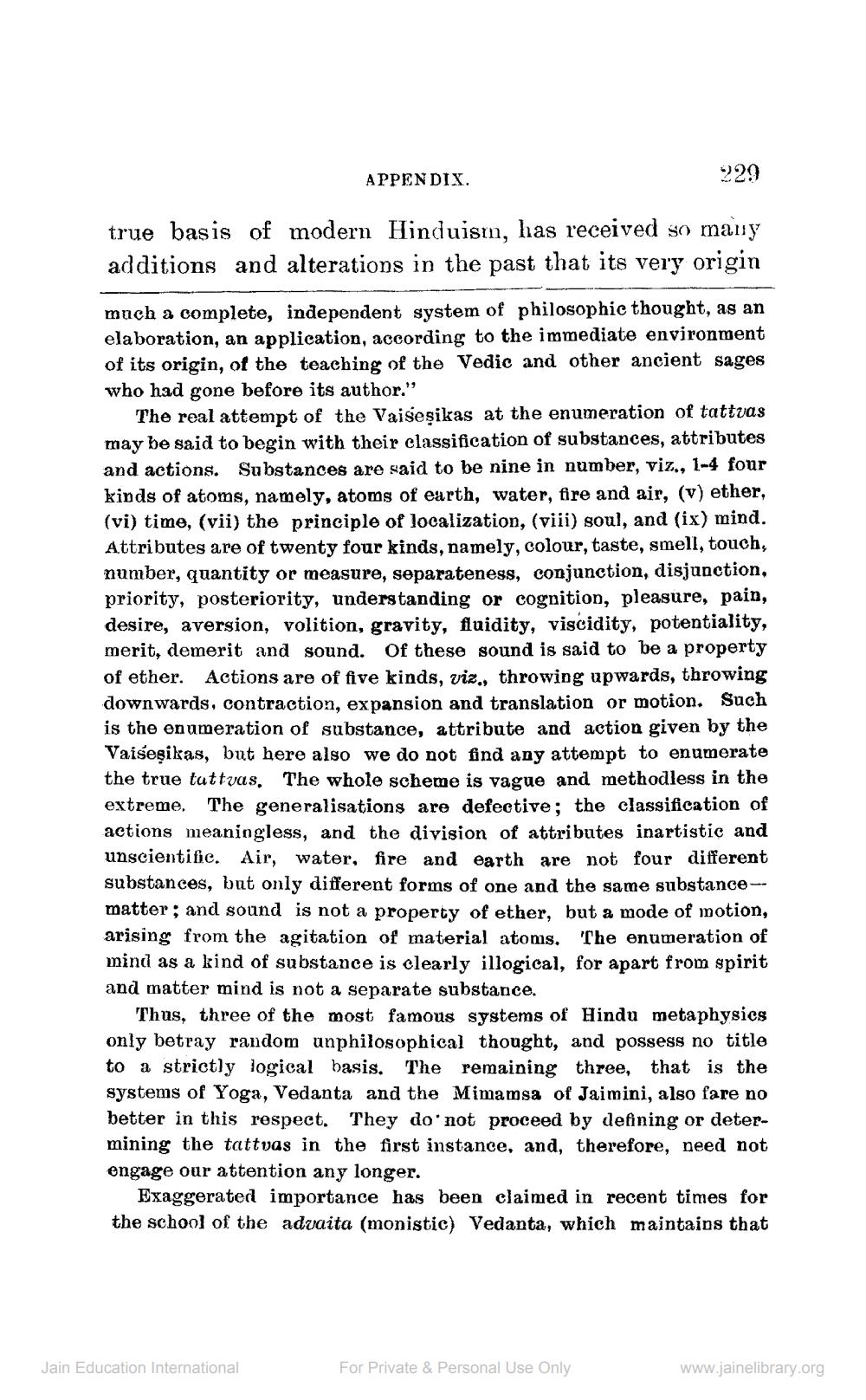________________
APPENDIX.
229
true basis of modern Hinduism, has received so many additions and alterations in the past that its very origin
much a complete, independent system of philosophic thought, as an elaboration, an application, according to the immediate environment of its origin, of the teaching of the Vedic and other ancient sages who had gone before its author."
The real attempt of the Vaiseşikas at the enumeration of tattvas may be said to begin with their classification of substances, attributes and actions. Substances are said to be nine in number, viz., 1-4 four kinds of atoms, namely, atoms of earth, water, fire and air, (v) ether, (vi) time, (vii) the principle of localization, (viii) soul, and (ix) mind. Attributes are of twenty four kinds, namely, colour, taste, smell, touch, number, quantity or measure, separateness, conjunction, disjunction, priority, posteriority, understanding or cognition, pleasure, pain, desire, aversion, volition, gravity, fluidity, viscidity, potentiality, merit, demerit and sound. Of these sound is said to be a property of ether. Actions are of five kinds, viz., throwing upwards, throwing downwards, contraction, expansion and translation or motion. Such is the enumeration of substance, attribute and action given by the Vaiseşikas, but here also we do not find any attempt to enumerate the true tattvas. The whole scheme is vague and methodless in the extreme. The generalisations are defective; the classification of actions meaningless, and the division of attributes inartistic and unscientific. Air, water, fire and earth are not four different substances, but only different forms of one and the same substancematter, and sound is not a property of ether, but a mode of motion, arising from the agitation of material atoms. The enumeration of mind as a kind of substance is clearly illogical, for apart from spirit and matter mind is not a separate substance.
Thus, three of the most famous systems of Hindu metaphysics only betray random unphilosophical thought, and possess no title to a strictly logical basis. The remaining three, that is the systems of Yoga, Vedanta and the Mimamsa of Jaimini, also fare no better in this respect. They do not proceed by defining or determining the tattvas in the first instance, and, therefore, need not engage our attention any longer.
Exaggerated importance has been claimed in recent times for the school of the advaita (monistic) Vedanta, which maintains that
Jain Education International
For Private & Personal Use Only
www.jainelibrary.org




